January 13, 2013
Is speculative fiction my "can't read"?
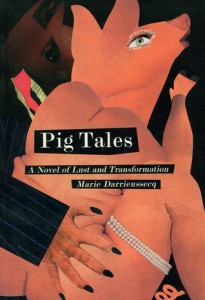 In June, I wrote this:
In June, I wrote this:
“Against Domesticated Fiction, or The Need for Re-Enchantment” was an essay by Patricia Robertson in Canadian Notes & Queries 84, in which Robertson decried contemporary writers in general for their failure to imagine the world beyond the individual, and the failure of contemporary writing to be anything but tedious. Hers was an inspiring argument, even stirring, and yet… I’m not yet tired of the kind of novel she’s maligning. Domesticated fiction remains what I most want to read, and I’m not nearly finished with it yet. And I don’t even have a good argument as to why this should be the case, except that I think that with the reader taking an imaginative leap, domesticated fiction can do as well as the fantastic, or any other kind of literature, to “incorporate some of the wildness, the strangeness, the mystery of the world around us.” To show that we are indeed “participants in a vast web of being.”**
Last week, Kyo Maclear published a fantastic essay at 49thShelf shelf about embracing “the bad read”, celebrating the kind of fiction that doesn’t go down easy. She wrote, “Yes, bring on the bad reads. Bring on those lousy good-for-nothing novels that embrace novelty, possibility, and surprise. Let’s hear it for god-awful fiction that believes anything can happen—that captures the weird, the awkward, the complicated, the downright bizarre…you know, the really real…in all its ghastly glory.”
Her argument was not dissimilar from Robertson’s, but Maclear came at it from a different point of view that made me less defensive. First, because she does that brilliant thing that critics never do wherein she celebrates one thing without necessarily denigrating another. And also because her point of view is similar to mine, as a reader and writer of “lyrical realism.” Her rallying call stirred my heart, and every part of my brain registered how completely right she was. How could I feel any other way, considering how often I am frustrated by readers’ refusal to be challenged by fiction? And yet, I could only be stirred so far. I don’t know who or what could ever compel me to pick up a porcine allegory, let alone an erotic one. (I’m still too afraid to read Tamara Faith Berger’s Maidenhead, for heaven’s sakes.) I want to be challenged, but I don’t want to be that challenged.
And isn’t that what we all find ourselves saying? When we throw up our arms and plead, “I’m 21 weeks pregnant with a small child and I only get the tiniest blocks of time to read in every day. Kindly leave me to read what I like. No sex pigs, please.” So yes, part of it is that I’m perpetually tired, as perpetually tired as every single human being on this planet is, but another part is that I cannot bring myself to be interested in a story unless human beings on this planet are what it’s addressing. Not just with books either–I can’t watch animated films unless its characters are people. I just don’t care. And I just don’t care about books depicting other worlds either, or other versions of this one. I liked A Wrinkle In Time, but only when they were at home, for example. The only part I liked in The Princess Bride is when Fred Savage is reading with his grandfather.
So now I’m doing that thing, denigrating an entire genre, but I’m not actually. I’m just clarifying the enormous gulf that lies between me and the kind of “bad reads”, anything’s-possible book that Maclear recommends. Perhaps if I weren’t too tired, I might do well to pick up some books from Leah Bobet’s Speculative Fiction Titles for Literary Readers list. Maybe what I’m suffering is not so attitudinal as a lack of a bridge? Why am I so afraid to take a leap?
But it’s not fear altogether. I’m not scared of speculative fiction necessarily (though the sex pigs, yes, sound terrifying) but I just don’t quite see the need for it. I’m still not finished with this world yet, and I don’t know that fiction is either. And while it’s a stunning achievement to construct a new universe, I think that any fiction writer does that whenever she sits down to write. I think that realism is perfectly capable of “embrac[ing] novelty, possibility, and surprise”. That last year, books by Anakana Schofield did this, and Zadie Smith, and Lauren Groff (though yes, she’s a genre blurrer at heart), and Annette Lapointe did this. Even Carrie Snyder’s book And these are the books I will challenge myself to read, though they don’t go down as easy as, say, A Large Harmonium by Sue Sorensen (which is so so so wonderful. Have I told you that lately?). For me, these books aren’t necessarily “good-reads” and they have passages and sections I have to read over and over to understand and appreciate what’s going on. Maybe one woman’s good-read is another’s bad-read, and speculative fiction is my “can’t read”? And really, what is reading for? And for whose sake? Do we have to save the world with book we pick up? And why ever wouldn’t we want to? And who’d ever have the time?
As ever, I’ve got no answers, but I look forward to more circular arguments and frustrations in a forthcoming post on Olive Kitteridge, naturally.
**Interestingly, there are responses to Robertson’s piece in the latest issue of CNQ. I haven’t read them yet, but look forward to doing so.
November 19, 2012
Reading in the First Trimester
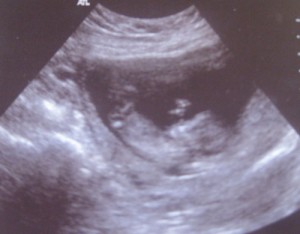 I have so much trouble reading when I’m 6-12 weeks pregnant. As I’ve done it twice now, I can say for a fact that I am the problem and it’s not necessarily the books I encounter, all of which seem to me to be absolutely intolerable. In my first trimester of pregnancy, I completely lack the patience required to overlook the (often obligatory) parts of any book that are intolerable, and understand its fundamental goodness. I can’t read a book that’s very long either, because eventually it becomes associated with nausea and even the thought of the book makes me want to puke. I have a similar relationship with Calgary– every time I go there, I’m 6 or 8 weeks pregnant, and I can’t even think about it anymore. And with Cloud Atlas, whose first pages I read in Calgary and therefore never again.
I have so much trouble reading when I’m 6-12 weeks pregnant. As I’ve done it twice now, I can say for a fact that I am the problem and it’s not necessarily the books I encounter, all of which seem to me to be absolutely intolerable. In my first trimester of pregnancy, I completely lack the patience required to overlook the (often obligatory) parts of any book that are intolerable, and understand its fundamental goodness. I can’t read a book that’s very long either, because eventually it becomes associated with nausea and even the thought of the book makes me want to puke. I have a similar relationship with Calgary– every time I go there, I’m 6 or 8 weeks pregnant, and I can’t even think about it anymore. And with Cloud Atlas, whose first pages I read in Calgary and therefore never again.
Another book I can’t handle is Cybele Young’s A Few Bites, which is so so good! But the book came into my life when I was six weeks pregnant and when Ferdie is presented with his lunch of broccoli, carrot sticks, and ravioli, my stomach heaves. I can no longer eat broccoli, which is bizarre because I’ve always loved it, but no longer, temporarily I hope. We’ve had to ask our organic food delivery to stop bringing it because every week I threw it out.
There is Nicola Barker’s The Yips, which I bought in Calgary but Calgary was not even the problem. The biggest problem I think is that it was not as good as Burley Cross Postbox Theft or Darkmans, and I was so unhappy (and feeling sick) while I was reading it. There were a few weeks where I hated everything, and not just books, but then I started reading A Very Large Soul: Selected Letters of Margaret Laurence, and began to feel better. Correspondance and short stories were the trick I guess, fragments, and perhaps this was why I was so elated to discover Isabel Huggan’s The Elizabeth Stories–finally a book to fall in love with. And the Susans anthology. And slowly, slowly, I was happy to find that I could love books again. (I am not sure that Calgary will recover so easily.)
So yes, this is a round-about way of saying that after being the first woman ever to have a baby three and a half years ago, I am going to pioneer the act of having a second at the end of May. Literary trauma aside, I’ve had a relatively easy first trimester and have been so grateful for Harriet’s mornings at school so that I’ve still been able to get my work done. Grateful too that we dragged out Harriet’s napping through the weeks when I needed it most. Also that emotionally, I’ve have a much easier time of it this time around–with a three year old running around, less apparent miracles are easier to believe in. I have faith this time, and it’s so refreshing not be crazy (though we’ll see how long the sanity lasts. In my experience, it comes in limited quantities only).
I am excited and terrified, and hoping that everyone who promised it would be easier second-time around wasn’t lying. I am really excited for Harriet to become a sister. And most of all, I just feel enormously lucky, that this decision whether or not to have a second child was one we had the freedom and good fortune to make for ourselves.
April 26, 2012
On Girls Fall Down: "Like it's liminal between real and imaginary, you know?"
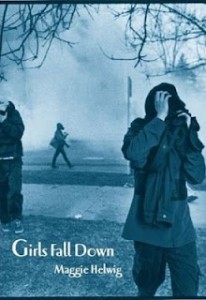 As it was when I first read this book in 2008, the plot is weak, but then plot is not the point in Maggie Helwig’s Girls Fall Down, which is this year’s One Book Toronto read and also one of the most evocative Toronto books I’ve read ever. And it’s been a funny week on my end, nothing dire, much that’s lovely, but just very busy and divorced from the strict routine my life is constructed around usually. Yesterday, I rode the subway so many times I bought a day-pass, and it was a strange thing to be reading this book on the TTC and carrying it through other places where some its most important scenes are set. It was a strange thing also to come home from a gathering where emotions were particularly heightened, and I kept thinking about the line on page 128, “our lives marked always by the proximity of others.”
As it was when I first read this book in 2008, the plot is weak, but then plot is not the point in Maggie Helwig’s Girls Fall Down, which is this year’s One Book Toronto read and also one of the most evocative Toronto books I’ve read ever. And it’s been a funny week on my end, nothing dire, much that’s lovely, but just very busy and divorced from the strict routine my life is constructed around usually. Yesterday, I rode the subway so many times I bought a day-pass, and it was a strange thing to be reading this book on the TTC and carrying it through other places where some its most important scenes are set. It was a strange thing also to come home from a gathering where emotions were particularly heightened, and I kept thinking about the line on page 128, “our lives marked always by the proximity of others.”
It’s such an atmospheric book, and the atmosphere keeps stealing into my own. Today I felt like Alex does: “…everything now seemed to assimilate into the city’s larger narrative.” Or rather, the city assimilating into Maggie Helwig’s narrative. It’s remarkable, isn’t it, the curious places where fact and fiction meet. Today I encounter the newspaper headline, “Students, staff at Scarborough elementary school fall ill”. ““They did a thorough inspection of the school and carbon monoxide or any other airborne problems were deemed not to be the cause,” said… spokesman for the Toronto Catholic District School Board”. And even the abortion clinic scenes, and today’s attack on Canadian women’s reproductive rights.
“So it was like that now, catastrophe inevitable at the most empty moments. Everyone waiting, almost wanting it, a secret, guilty desire for meaning. Their time in history made significant for once by that distant wall of black cloud.”
And it’s funny because my reaction to this book upon first read was that the Toronto under siege depicted felt so foreign to me– I’d missed the SARS epidemic, and the big black-out. But Helwig’s city feels more familiar now, and not just the police brutality since this happened, or how much awful the world is in 2012 as compared to how it was in 2008 (which is much). More amusingly, there’s the scene where the pigeon gets into the hospital, which definitely means more since this happened (and the birds! How I have to reread Headhunter).
But I think basically I’ve just been overwrought this last day or so and that the weather has been funny, but still. What crazy things fiction can do to our minds, and the innumerable ways our stories appear to affect the world.
October 7, 2011
The Withdrawal Method
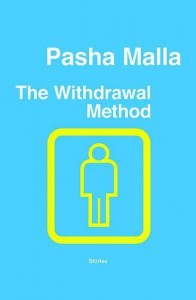 I knew we were in for trouble once I’d spent most of Monday in tears about the death of Ralph Steinman, co-winner of the Nobel Prize for Physiology. For the next few days, emotions and hormones conspired to make me insane, and were assisted by my having read Lois Lowry’s The Giver and then Tessa McWatt’s Vital Signs, two very different books who share much heaviness in common. By the time I started reading Pasha Malla’s The Withdrawal Method on Wednesday, things were out of control. “Everybody’s dying of cancer in this book,” I kept exclaiming. “I thought Pasha Malla was supposed to be funny.” (Interestingly, reading McWatt followed by Malla was sort of fascinating, if not depressing. Both books share surprising things in common beyond their pictograms, Malla’s first story, “The Slough” in particular.) I wasn’t sure I’d be able to take much more of it, but was urged onwards at a gathering of Pasha Malla devotees on Wednesday night, which was operating under the guise of a reading by Rebecca Rosenblum and Laura Boudreau at Type Books. The Pasha Malla thing I discovered once I’d started railing against The Withdrawal Method in the cookbook section, and was confronted by a league of passionate defenders. Sympathetic passionate defenders, mind you. They understood about the Ralph Steinman thing and that I was operating under a limited emotional capacity at the moment. That perhaps this wasn’t the book for everyone, at every time. And I understood that it was a bit like back in my first trimester of pregnancy when I hated every single book that came my way because I associated all of them with feeling nauseous and exhausted, except that now, of course, I’m the opposite of pregnant.
I knew we were in for trouble once I’d spent most of Monday in tears about the death of Ralph Steinman, co-winner of the Nobel Prize for Physiology. For the next few days, emotions and hormones conspired to make me insane, and were assisted by my having read Lois Lowry’s The Giver and then Tessa McWatt’s Vital Signs, two very different books who share much heaviness in common. By the time I started reading Pasha Malla’s The Withdrawal Method on Wednesday, things were out of control. “Everybody’s dying of cancer in this book,” I kept exclaiming. “I thought Pasha Malla was supposed to be funny.” (Interestingly, reading McWatt followed by Malla was sort of fascinating, if not depressing. Both books share surprising things in common beyond their pictograms, Malla’s first story, “The Slough” in particular.) I wasn’t sure I’d be able to take much more of it, but was urged onwards at a gathering of Pasha Malla devotees on Wednesday night, which was operating under the guise of a reading by Rebecca Rosenblum and Laura Boudreau at Type Books. The Pasha Malla thing I discovered once I’d started railing against The Withdrawal Method in the cookbook section, and was confronted by a league of passionate defenders. Sympathetic passionate defenders, mind you. They understood about the Ralph Steinman thing and that I was operating under a limited emotional capacity at the moment. That perhaps this wasn’t the book for everyone, at every time. And I understood that it was a bit like back in my first trimester of pregnancy when I hated every single book that came my way because I associated all of them with feeling nauseous and exhausted, except that now, of course, I’m the opposite of pregnant.
Anyway, I woke up yesterday feeling much less idiotic, and continued on with The Withdrawal Method, and appreciated it more than I’d ever thought possible on Wednesday. Am convinced that this all really does have something to do with the second half of the book being better than the first, but perhaps that’s just my idiot bias showing. Regardless, I’m following it up with novel by Jennifer Weiner, which is the sort of thing I need right now like I really need a hot bath and a bar of chocolate.
July 25, 2011
Alas
 I was expecting to have a brand new book review for your reading pleasure today, except that in the space of 36 hours this weekend, I gave up on three (3) books. One wasn’t a bad book, but it just wasn’t interesting for me, and you’d wonder why I was reviewing it; the second was a flawed first book that I might have stomached (it had worth) but it wasn’t up my alley; and the third was a very popular book whose author’s prose had me grimacing in the forward and it was only more of the same– I gave it until page 6. So no new book review, but now I am reading Kate Christensen’s The Astral, and I think it’s her best book yet. I hope I’m able to fit in one more book before we leave for vacation on Saturday (when I will disappear off the edge of the internet for a week, by the way).
I was expecting to have a brand new book review for your reading pleasure today, except that in the space of 36 hours this weekend, I gave up on three (3) books. One wasn’t a bad book, but it just wasn’t interesting for me, and you’d wonder why I was reviewing it; the second was a flawed first book that I might have stomached (it had worth) but it wasn’t up my alley; and the third was a very popular book whose author’s prose had me grimacing in the forward and it was only more of the same– I gave it until page 6. So no new book review, but now I am reading Kate Christensen’s The Astral, and I think it’s her best book yet. I hope I’m able to fit in one more book before we leave for vacation on Saturday (when I will disappear off the edge of the internet for a week, by the way).
And do check out what I’ve been cooking up over at Canadian Bookshelf lately: I wrote about the nonfiction writers event at Ben McNally’s last week with Sarah Leavitt and Andrew Westoll; a guide for short story reading novices; and this fabulous guide to 2011 Canadian literature festivals. See also great guest posts by Rebecca Rosenblum, Jessica Westhead and Robert J. Wiersema.
June 6, 2011
The YA fiction of my youth: bulldozing coarseness, misery and a whole lot of sex
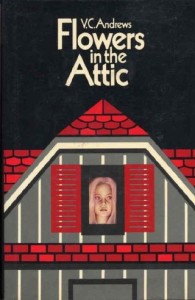 I haven’t read much YA fiction since coming of age, and though I do raise eyebrows at adults who read it exclusively (what? I’m just passing judgment…), I’ve got no case to make against the genre itself. Because YA made me into the reader I am, one that reads voraciously, and I am sure that’s because my YA books were packed with subject matter that was no less than fascinating: namely the “kidnapping and pederasty and incest and brutal beatings” for which this bizarre piece maligns modern YA–not to mention a whole lot of sex. Here, I highlight the best of the sordid:
I haven’t read much YA fiction since coming of age, and though I do raise eyebrows at adults who read it exclusively (what? I’m just passing judgment…), I’ve got no case to make against the genre itself. Because YA made me into the reader I am, one that reads voraciously, and I am sure that’s because my YA books were packed with subject matter that was no less than fascinating: namely the “kidnapping and pederasty and incest and brutal beatings” for which this bizarre piece maligns modern YA–not to mention a whole lot of sex. Here, I highlight the best of the sordid:
Forever by Judy Blume: This book is infamous, it has teenage sex (on a rug!) and a penis with a name. Also, a grandmother who disseminates Planned Parenthood paraphernalia. Is probably the main reason any teenager ever got pregnant. Or used birth control and didn’t.
Sunshine by Norma Klein: Norma’s books were always a bit sexy, but this one in particular. Also, it was based on a true story, but what YA novel wasn’t? The story of Jill who is a divorced, teenage single mother who is not only having an affair with a hippie on a mountain top, but is dying of cancer.
Looking On by Betty Miles: This book sat on our toilet cistern, so everyone in my family has read it a lot. It’s the story of Rosalie, who becomes infatuated with a young couple from the community college who rent a trailer in her backyard. No blatant sex, but Rosalie is totally miserable, and spends a lot of time fantasizing about the young man’s thighs beneath his cut-offs.
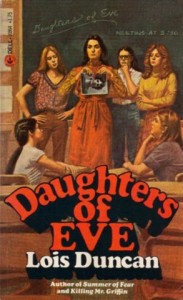 Daughters of Eve by Lois Duncan: A militant feminist manifesto about a group of female students bent on vengeance for the inequality in their everyday lives. Incredibly violent. There is also, naturally, sex. (Do see all of Lois Duncan’s other books if you think that modern YA fiction is disturbing).
Daughters of Eve by Lois Duncan: A militant feminist manifesto about a group of female students bent on vengeance for the inequality in their everyday lives. Incredibly violent. There is also, naturally, sex. (Do see all of Lois Duncan’s other books if you think that modern YA fiction is disturbing).
Hey, Dollface by Deborah Hautzig: This book is about two miserable teenage girls who explore lesbian relations together. I read it over and over, in particularly the part about breast fondling.
Tiger Eyes by Judy Blume: Misery galore: Murdered dad, broken dreams, the atomic bomb, and an annoying aunt called Bitsy. Though I was mostly drawn to the part where she gets it on with her boyfriend under the boardwalk.
Flowers in the Attic by VC Andrews: The sex was incestuous, but that was all right with me!
Then Again, Maybe I Won’t by Judy Blume: And boys can be miserable too! Here, we’re dealing with a brother dead in Vietnam, class struggles, and a boy who uses his binoculars for “bird watching” if you know what I’m saying. Because the teenage girl next store never closes her drapes.
Sweet Valley High by Francine Pascal: Don’t hate me, but I didn’t love these books. Mostly because there wasn’t enough explicit sex. But there were enough boyfriends, misery, backseats and post-game parties that I could read what was going on between the lines.
Face on a Milk Carton by Caroline B. Cooney: Just wanted to point out that my generation liked to read about kidnappings too, and that we turned out all right!
January 11, 2011
Making Light of Tragedy gets made over
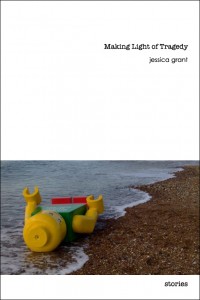 Seriously, there is nothing the Vicious Circle can’t do. We decide we don’t like the cover of Jessica Grant’s Making Light of Tragedy? Fine. Our Patricia makes another one. And we love it.
Seriously, there is nothing the Vicious Circle can’t do. We decide we don’t like the cover of Jessica Grant’s Making Light of Tragedy? Fine. Our Patricia makes another one. And we love it.
December 20, 2010
I am going to blame my current lack of focus on
I am going to blame my current lack of focus on David Shields, who thinks that focus is boring, and narrative is boring, and who cares about people or fiction, and that popular music stopped being worthwhile at about the same time he ceased to be young. I just finished reading Shields’ Reality Hunger, which I kept screaming at (“You motherfucking, self-hating book…”), but which I’m glad I read it, because his thoughts about fiction, non-fiction, and memoir gave me a lot to think about. However exasperating, the book is interesting and worthwhile, a collage of various sources intermingled with Shields’ own thoughts and ideas, each numbered paragraph disjunct from what came before it. That there is no whole, just fragments we construct in various ways, but I was left longing for a bit of synthesis. However, that’s just me, the status-quo rally-er cited in the book’s jacket copy. Unlike Shields, who writes books, I really love them, but I just read them so what do I know? I do know that it’s strange that Shields is bored by everything so thinks the entire world should change, rather than just working to improve his pathetic attention span. Also, as an effect of reading his book, my attention span is just a little shot too, and I can’t wait to open up a real book and read it and get my mind back, now that I’m finished with this stomping tantrum of a text. (Which, actually, I didn’t finish at all, but I had had enough of by page 180 and so I decided to put it down, which might be the most David Shieldsian thing I’ve done ever.)
November 9, 2010
Soap and Water
CBC Metro Morning was so delightfully bookish this morning, with pieces including an interview with Giller juror Michael Enright who had nearly read himself to death these last few months. And an interview with Dr. Alison McGeer about the decision to take magazines out of waiting rooms at Women’s College Hospital. Which was shocking for a few reasons, including 1) They still have waiting rooms at Women’s College Hospital? 2) But who will subscribe to Highlights for Children? 3) Who cares!? Doesn’t everybody have a novel in their purse already??
Since Harriet was born (which was nearly 1.5 years ago!), waiting rooms have offered me more uninterrupted reading opportunity than anywhere else. When she was about two months old, I waited for over two hours at a Passport Canada office while she slept in her stroller and I read (oddly enough), Between Interruptions: Thirty Women Tell the Truth About Motherhood (which was about thirty times more truth than I needed at that moment, by the way. Reading it was totally exhausting).
I had to go to the dermatologists early this summer and Harriet stayed home with my Aunt, while I got an entire subway journey there and back AND an extended waiting room round with Sarah Selecky’s marvelous This Cake is For the Party. There was a large screen TV in the waiting room too, which was blasting an episode of The View which made me very depressed about the state of the world, but Selecky’s stories really helped.
And then the legendary night this summer after Harriet poked me in the eye, and I waited in the walk-in clinic for six amazing hours reading Slouching Towards Bethlehem. It was also the middle of a heat wave, and the clinic was far more air-conditioned than my house was. I was almost disappointed when the doctor could see me then, though relieved to discover that I would not go blind.
All of this to say that I will not miss the old copies of Macleans then, or Shape, or Women’s Day, but then maybe I should have read them more, if only to absorb the diseases they’re apparently crawling with, so I’d get sick, go back to the doctor’s, then get to read some more.
October 27, 2010
That's what I call bad novels.
“To make a long story short, let’s imagine something called “industrial literature.” It’s job is to reproduce, ad infinitum, the same types of stories, to grind out assembly-line stereotypes, to retail noble sentiments and trembling emotions, to seize every opportunity to turn current events into docu-dramas, to conduct market studies in order to manufacture, according to demographic profile, products designed to tease the imaginations of specific categories of consumers.
That’s what I call bad novels.
Why? Because they’re not creations. Because they reproduce pre-established forms. Their enterprise is one of simplification (lies, in other words), whereas the novel is the art of truth (complexity, in other words). Because by provoking knee-jerk reactions, they lull our curiosity. Because the author is absent, and so is the reality he or she claims to describe.” –Daniel Pennac, Better Than Life





